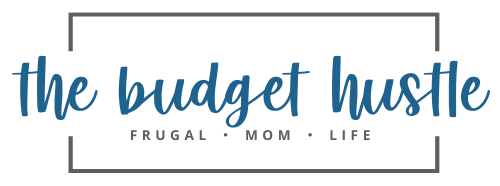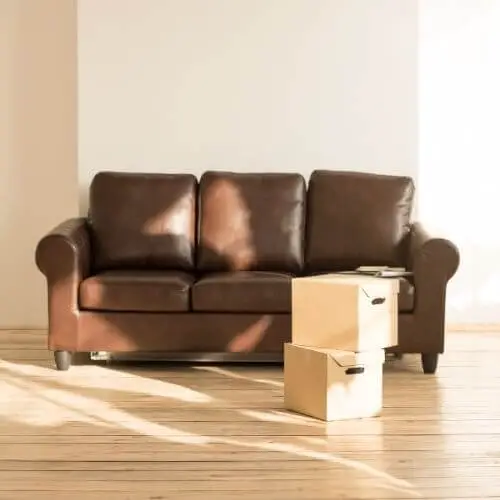This site contains affiliate links to products. We may receive a commission for purchases made through these links.
So you have decided to move out and you know money is going to be tight. Going out on your own for the first time is exciting and scary all at the same time. It’s so important that you do this right so that you aren’t setting yourself up for financial failure. That’s why I’m sharing my first apartment checklist with you to help you figure out the necessities.
First, you need to sit down and figure out your budget. There’s no other way to do it. You have to know where your money is coming from and where it will go. After you do this, you will know what can be spent on move-in items you need.
Get your mind right in the beginning, before you even sign the lease. This will keep you on the positive side of living on your own and keep you from going broke.
Grab Our First Apartment Checklist Now.
Be Realistic
When you are sitting down to access your moving out situation, you have to be realistic with yourself. You might not be able to afford the coolest, most modern apartment in town. This is ok. I just want you to make sure where you choose to live is safe.
Don’t sacrifice your well being for cheap rent. It won’t end well.
Also, remember that it’s not yours. When your lease is up, you are going to leave that apartment behind. It’s better to be sensible about it and save your money for what you really want later, whether that be a beautiful house or a stylish apartment…when you CAN afford it.
Safety First
First and foremost, you need to look at all aspects of your safety.
- Check Crime Statistics
- Smoke Detectors/Sprinklers
- Locks/Peepholes
- General Lighting
- Security Features
Go to Area Vibe to see if the neighborhood is somewhere you feel comfortable living. This is a free tool that uses a score from crime rates, cost of living, education, employment, housing, and weather to show you if it’s considered safe. You can get incident reports on crime too.
Another aspect of safety is checking to make sure everything is in working order. Check the doors and windows for functionality. I will tell you why I say this…My husband does maintenance work on the side for a landlord who rents to college kids. Bless their hearts, a house with 4 girls living there, thought their windows were broken. Turns out they didn’t know how to open them.
This can be a huge safety concern, especially if you need it for a fire escape. Ok, enough with the lecture…seriously, make sure you know how to operate everything and that it actually works.
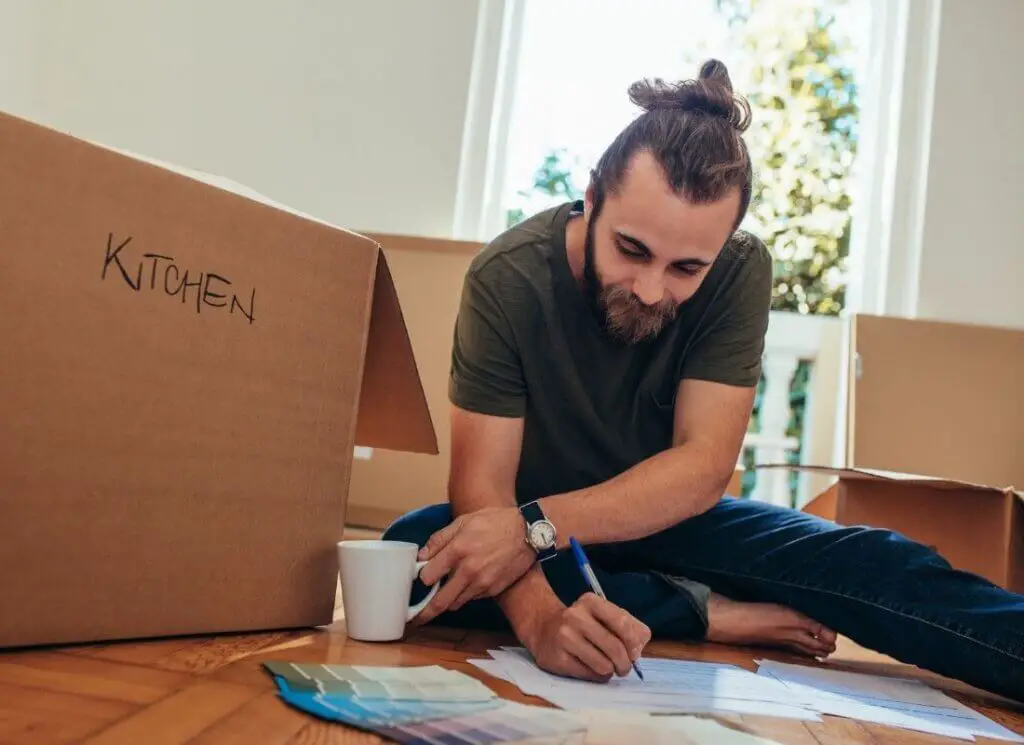
Figure out your budget
Back to what we came here to talk about, the money. Before you sign anything, sit down with your last few month’s bank statements and write down your income.
Example: If you make $600 per week then your monthly income is $2400. This is important to know because you pay bills monthly, not weekly. Next, you need to write down possible bills.
- Rent
- Power
- Internet/Cable
- Gas/Water
- Renters Insurance
You need to use the 50-30-20 rule here. This means that 50% of your income needs to cover the needs (bills you have to have), 30% is for spending, and 20% into savings.
So, if your monthly income is $2400 then $1200 can be for bills and necessities, $720 can be for spending and $480 needs to be in savings. If you owe a debt, you can half the savings amount and pay towards debt. But you need to always be putting something into savings.

Moving Expenses
Moving expenses are going to be one time and you can make it happen cheap. An example is moving boxes, you don’t have to buy boxes. Start a month or two ahead of time and grab some from your local liquor store (they usually set them aside for anyone to get) or ask your local retail store to save you some when they have trucks come in and they put up inventory.
Furniture is another moving expense you need to take into consideration. You can ask your family if they have anything to donate or head to a thrift store and search there.
I have a friend who finds furniture cheap and refinishes it to make it look brand new. Check the Facebook marketplace for deals just be sure you are being safe when you go and pick things up from other people.
The renter’s deposit is a one time expense you have to consider as well. It can range anywhere from a few hundred dollars to a thousand or more depending on how much your rent is and what your credit history is.
We also saved money by not having a cable tv subscription. Instead, we use Hulu and Netflix because let’s face it, in today’s world everybody needs the internet so you can save by using Hulu or Netflix.
Things you need
Grab our free move-in ready first apartment checklist!
Printable List for Moving In
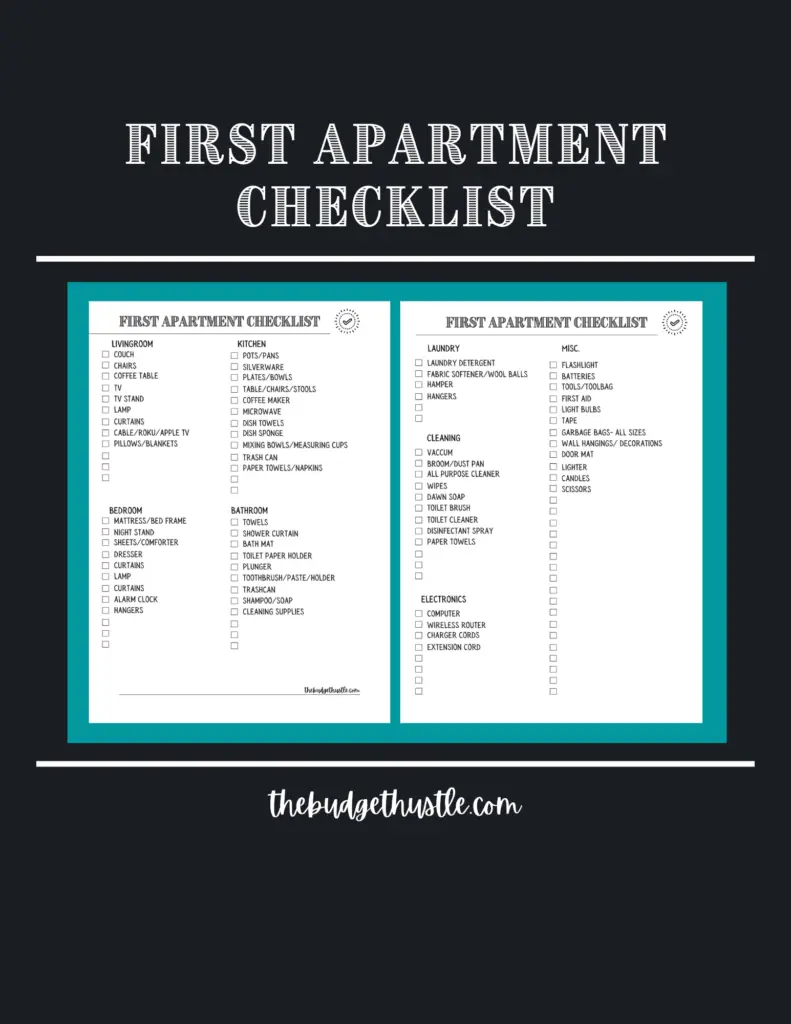
Now that you have your budget figured out and your apartment picked out, it’s time to get what you need to move in. I love a good sale, so my advice to you is…shop around, grab the sales. Use coupons and money-saving apps.
I love the Dosh app. All you have to do is put in the card that you will use and anytime you buy from a store on their list, they automatically give you cashback. I just got money back from Walmart the other day.
I also use iBotta. This one is great, especially at grocery stores to get cashback.
Shop around…hit up thrift stores and Facebook marketplace. Go online and find clearance items at places like Wayfair or Overstock.
Ask your family and friends, they might have something to give or sell to you cheap.
Another place you can search for things is Amazon. Also, when you search for things on Amazon, it will give you ideas in the search results that you might not have thought of.
Renters Insurance
If you are renting, no matter where or what you rent…I highly recommend renters insurance. There are management companies out there that require it. Even if they don’t it’s always good to protect your stuff.
It’s not expensive and worth the investment. You can talk with the agent that carries your auto insurance and they might have some ideas. You also might get a discount if you bundle with your car insurance.
I like the coverage offered by Lemonade. Coverage starts from $5 and it covers stuff in and out of your home. It’s ranked 4.9 stars in the AppStore and Google Play. It’s fast and covers so much stuff. Claims are paid super fast without any paperwork. No hassle. No waiting.
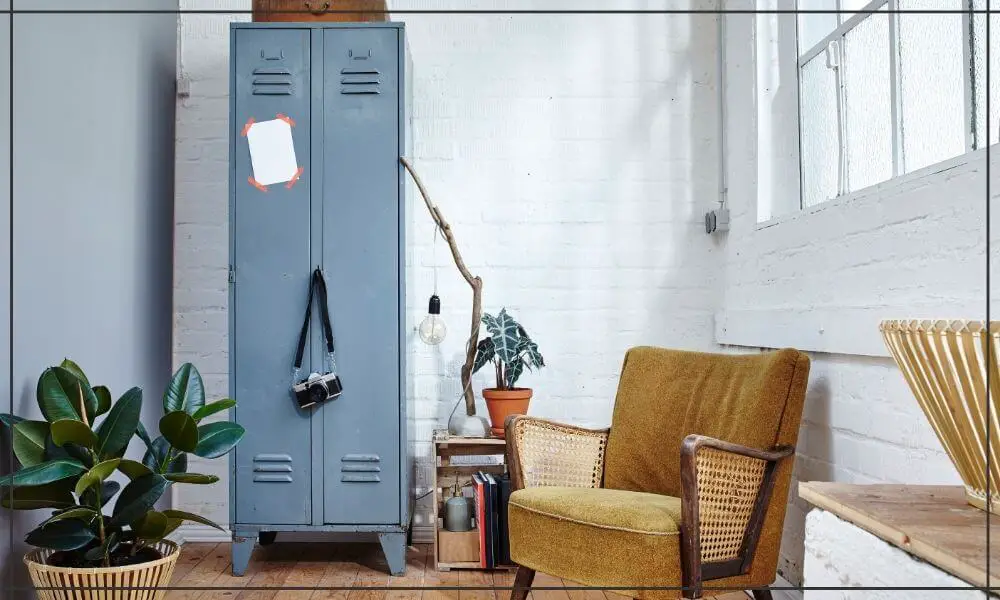
Other ways to save
If you figure out that you can’t live where you want by yourself or if you think money will be stretched too thin, think about a roommate or a studio apartment.
You also need to consider if living in a different city or on the outside of the city.
If you choose a roommate and you don’t have a friend in mind, you can use a matching service to find one. Roommates.com or Roomster offer services to help match you with someone.
Conclusion
Moving out is the first step to freedom and responsibility as an adult. When you move out, you don’t have to break the bank and there are other options. It’s an exciting journey and we encourage you to get it right the first time so that you save yourself heartache in the future.
Grab yourself a Budget. If you need tips on saving at the grocery store here. I also have frugal living tips to help you stay on track while you are out on your own.
